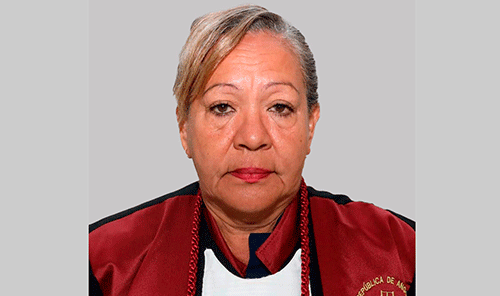Iuze Mukube
In a significant step towards promoting mutual trust, understanding and a shared judicial area among regional judiciaries in Southern Africa, a judicial exchange programme between Namibia and Angola commenced on Monday.
The initiative is an effort to assist the Angolan judiciary in fulfilling its objectives.
Chief Justice Peter Shivute welcomed the procession of Angolan judiciary officials on Monday. He said the two nations’ relationship has changed over time at the legislative and executive levels, but not much at the judicial level.
As a result, the exchange programme offers both the Judiciary’s much-needed assistance and educational opportunities.
Anabela Couto de Castro Valente, leading delegate and Advisor Judge on Functions in the Criminal Chamber of the Supreme Court of Angola, expressed gratitude for the opportunity presented, and noted that Angola looked forward to hosting the Namibian judiciary in Angola on the same platform. According to a statement from the Office of the Judiciary, the Southern and East African Chief Justices Forum (SEACJF), created this platform with assistance from the American Bar Association (ABA) Rule of Law Initiative (ROLI), in order to guarantee that courts are appropriately-run and structured.
Moreover, the forum [SEACJF] gives Chief Justices from Southern African Development Community (SADC) and Africa at large the opportunity to jointly consider important issues related to justice delivery, and establish action plans to address such concerns in a methodical and long-term manner.
Crucially, the programme will serve as a continuation of, and support for the strong relationship that already exists between the two countries.
The ABA ROLI is putting in place a three-year rule of law initiative in Angola, with the goal of improving the independence, effectiveness and contribution of the judicial sector to the nation’s democratic openness.
As such, the programme aims to improve civic understanding, build judiciary capacity, and foster public trust in court systems.
It particularly focuses on providing insights on case management systems and the importance of judicial appointment processes in promoting the independence of the judiciary.
Regarded as a judicial revolution that transformed the nation’s long-standing system of managing procedures into a highly-effective new order, the Namibian judiciary is thought to be operating one of the most successful case management systems in the SADC region.
This system is viewed as potentially useful to all jurisdictions plagued by backlogs and delays in delivering civil justice, and that are open to considering ‘radical reforms’ to their existing systems.
With this recognition, and in the spirit of regional judicial cooperation and cross-learning, it is expected that the Angolan judiciary can glean useful insights from this system for adoption and adaptation in their own country.
It will also promote the implementation of tools created by the SEACJF, such as the Lilongwe Principles and Guidelines on the Selection and Appointment of Judicial Officers, formally adopted by the Forum in October 2018.
Additionally, the programme will ensure nations explore each other’s judicial cultures, systems and processes, and will strengthen bilateral cooperation and neighbourliness, focusing on judicial collaboration and building on the SEACJF’s past efforts to coordinate regional judiciaries.



